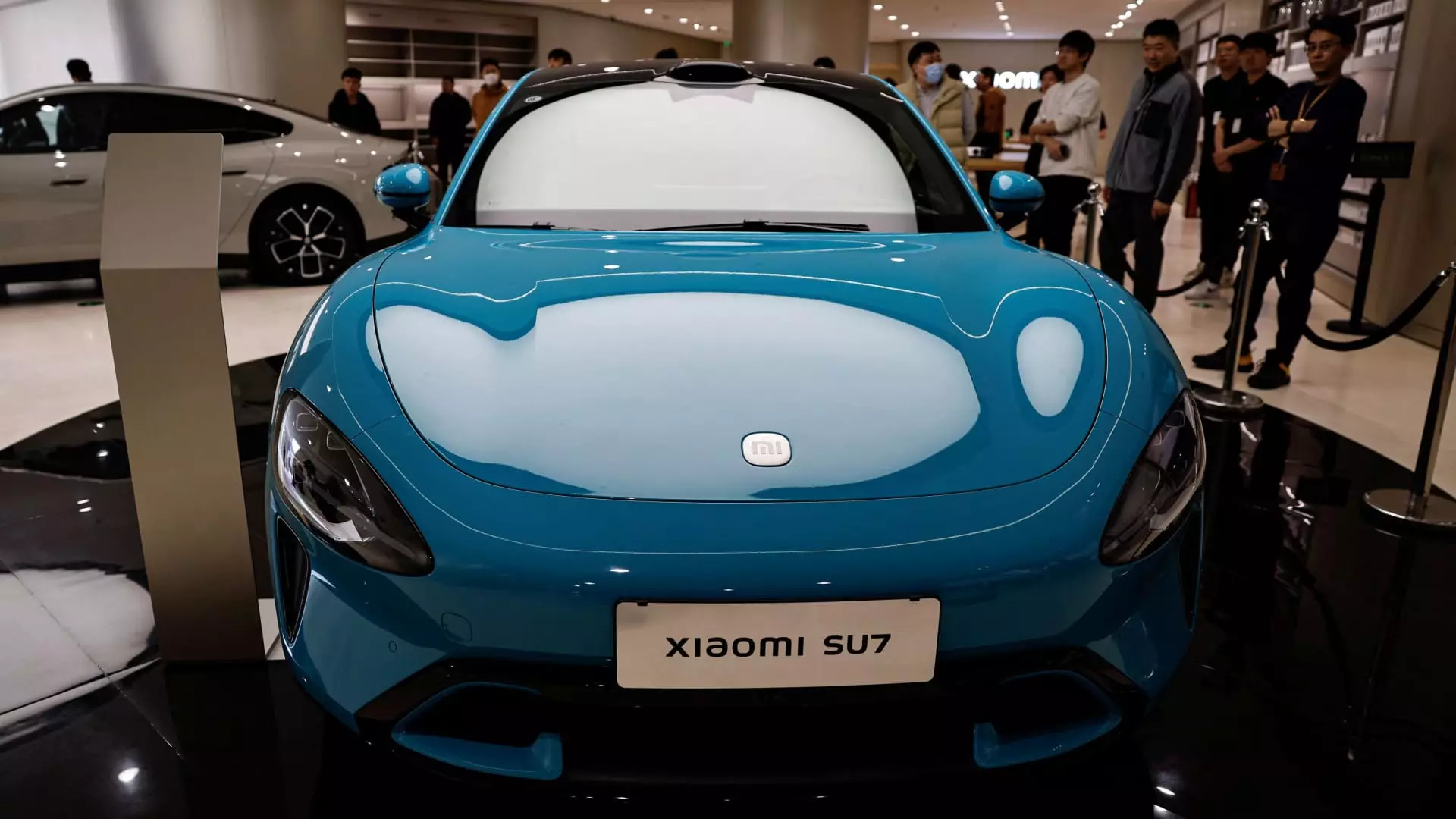The auto industry has been sent into a tailspin with the unexpected entry of Chinese smartphone company Xiaomi into the market. As Tesla struggles to maintain its dominance, Xiaomi has taken the bold step of undercutting the competition by introducing its electric SU7 sedan at a price significantly cheaper than Tesla’s Model 3. With a similar tech capability and a promise to become one of the top five automakers globally in the next two decades, Xiaomi has captured the attention of industry analysts and investors alike.
As Apple decided to scrap its development of an electric, self-driving car, Xiaomi’s founder and CEO Lei Jun made a bold claim that producing a car will not only be his final legacy project but also a vehicle to propel Xiaomi to the pinnacle of the auto industry. The Hong Kong-listed shares of Xiaomi soared to a two-year high following the introduction of the SU7 sedan, indicating a strong investor interest in Xiaomi’s foray into the auto sector. This unexpected shift in focus from smartphones to electric vehicles has raised eyebrows and generated curiosity among industry experts.
Industry analysts have started to take notice of Xiaomi’s disruptive potential in the auto market, with some projecting a significant growth trajectory for the company. Morgan Stanley’s auto analyst Adam Jonas highlighted Xiaomi’s attractiveness as a collaboration partner for Western legacy auto firms seeking to scale up and reduce execution risks. With a sharp focus on driver-assist and smart cabin features, Xiaomi has the potential to emerge as a major player in the global electric vehicle (EV) market.
Morgan Stanley’s greater China tech hardware analyst, Andy Meng, echoed this sentiment by reiterating the bank’s overweight rating on Xiaomi and setting a price target well above the current stock value. Despite a recent surge in Xiaomi’s share price, there remains a sense of cautious optimism regarding the company’s long-term prospects in the auto industry.
Consumer Response and Market Dynamics
Xiaomi’s announcement of the SU7 sedan generated significant consumer interest, with over 100,000 orders received within a short period. The subsequent delivery of the first batch of cars and the positive reception from customers have set the stage for Xiaomi to establish a strong presence in the auto market. However, some industry experts remain skeptical about Xiaomi’s ability to sustain this momentum and deliver on consumer expectations in the long run.
Shenzhen-based CEO Taylor Ogan highlighted the importance of consumer feedback and market response in determining the success of Xiaomi’s electric vehicles. While Xiaomi’s ecosystem of connected devices and smart technology offers a unique value proposition, the company faces challenges in ensuring customer satisfaction and driving future growth. With a significant wait time for customers and ongoing concerns about product performance, Xiaomi must navigate a complex landscape to establish itself as a credible player in the auto industry.
Despite the optimism surrounding Xiaomi’s entry into the auto market, there are inherent risks and challenges that the company must address. China’s ability to produce electric cars at prices below overseas competitors has raised concerns about potential trade tensions and market volatility. The reliance on automation and smart manufacturing processes presents both opportunities and risks for Xiaomi, as it seeks to enhance production efficiency and profitability in the long term.
JPMorgan’s analysis emphasized the importance of brand recognition and financial stability for Xiaomi to weather the competitive storm in the auto industry. With a substantial cash reserve and a strategic investment in its own production facilities, Xiaomi is well-positioned to capitalize on the growing demand for electric vehicles in China. However, the company must tread carefully and demonstrate its ability to deliver high-quality products and services to compete effectively with established players in the market.
As Xiaomi continues to disrupt the auto industry with its electric SU7 sedan, the company faces a critical juncture in its journey towards becoming a global automaker. With a focus on innovation, technology, and consumer experience, Xiaomi has the potential to reshape the future of electric vehicles and drive sustainable growth in the market. While challenges and uncertainties loom on the horizon, Xiaomi’s bold vision and strategic investments position it as a formidable contender in the evolving landscape of the auto industry.

